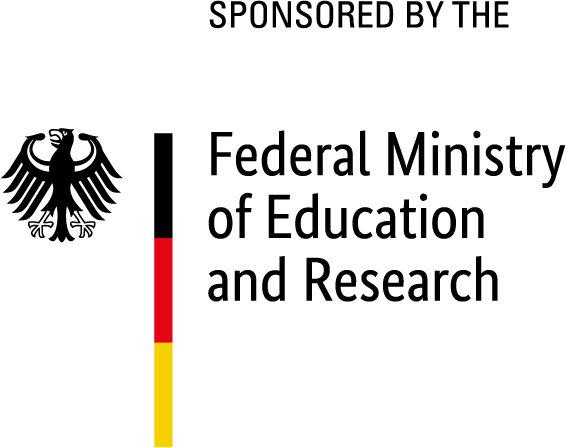In June, the fifth project trip of the BMBF-funded INTEWAR project (Innovative Technologies for the Control of Water-Associated Diseases) took place in Cameroon with the largest German delegation to date. The aim of the trip was to hand over the drinking water treatment plant to the district of Montana City in Douala V, the second ultrafiltration plant in total, which was planned and built together with Cameroonian stakeholders during the project period and is now being put into operation. Furthermore, various workshops and training measures were carried out with Cameroonian stakeholders, as well as data collection and field visits.
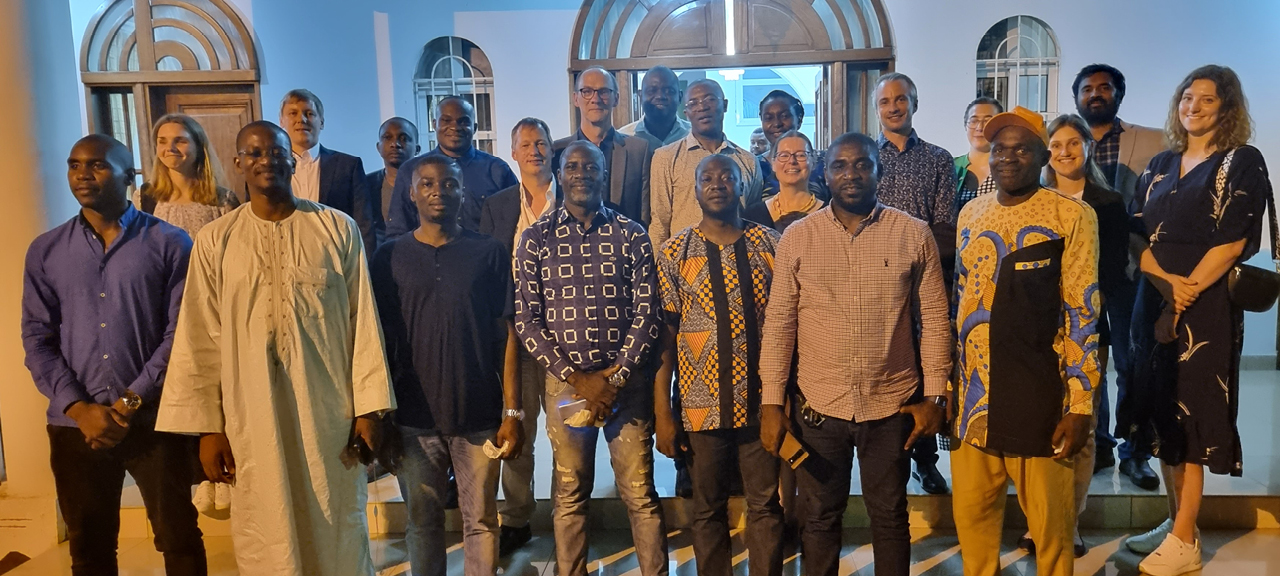
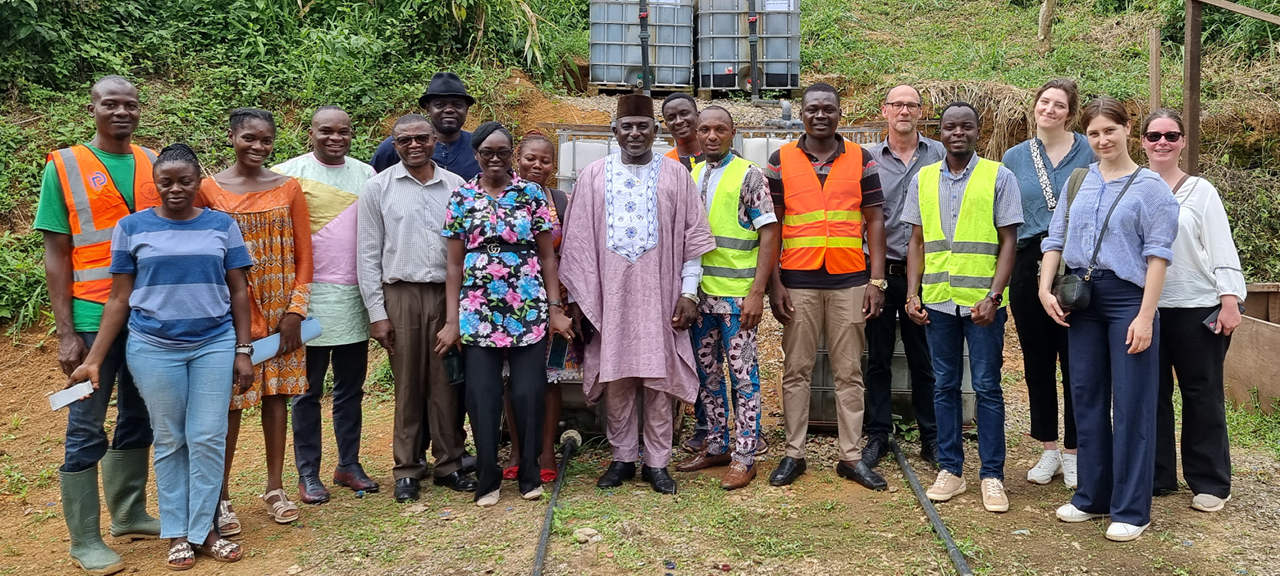
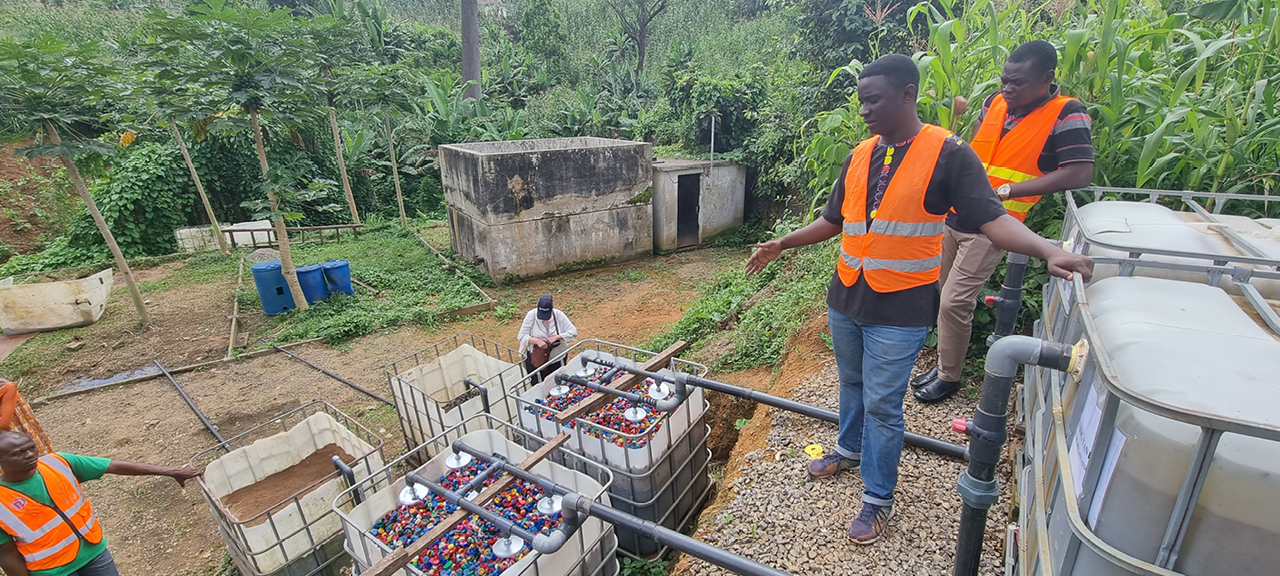
The project team, this time consisting of three FiW employees, two IASU employees, two IHPH employees, three IWW employees and one PAULA Water GmbH employee, arrived in Douala on June 6th. On site, the team was welcomed by Cameroonian partners and accompanied during the trip.
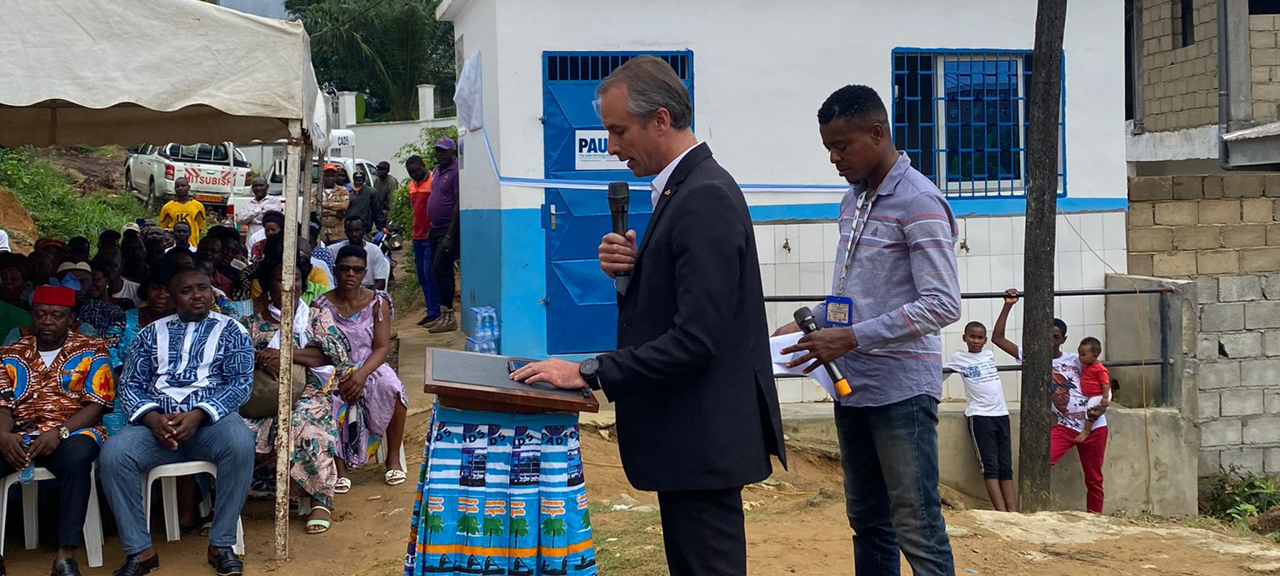
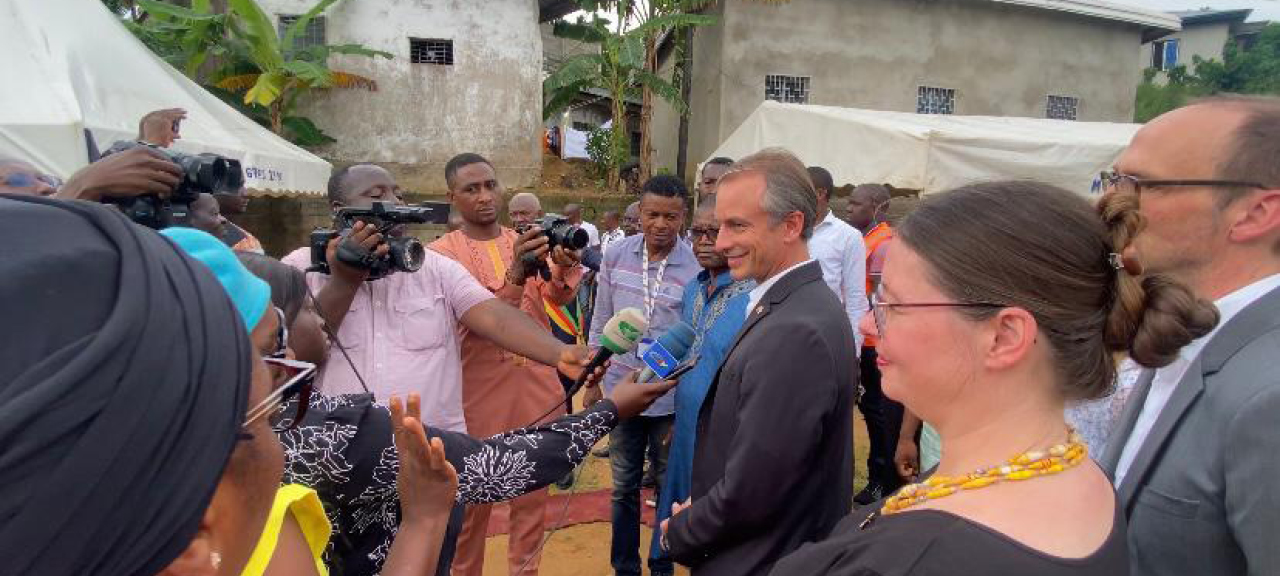
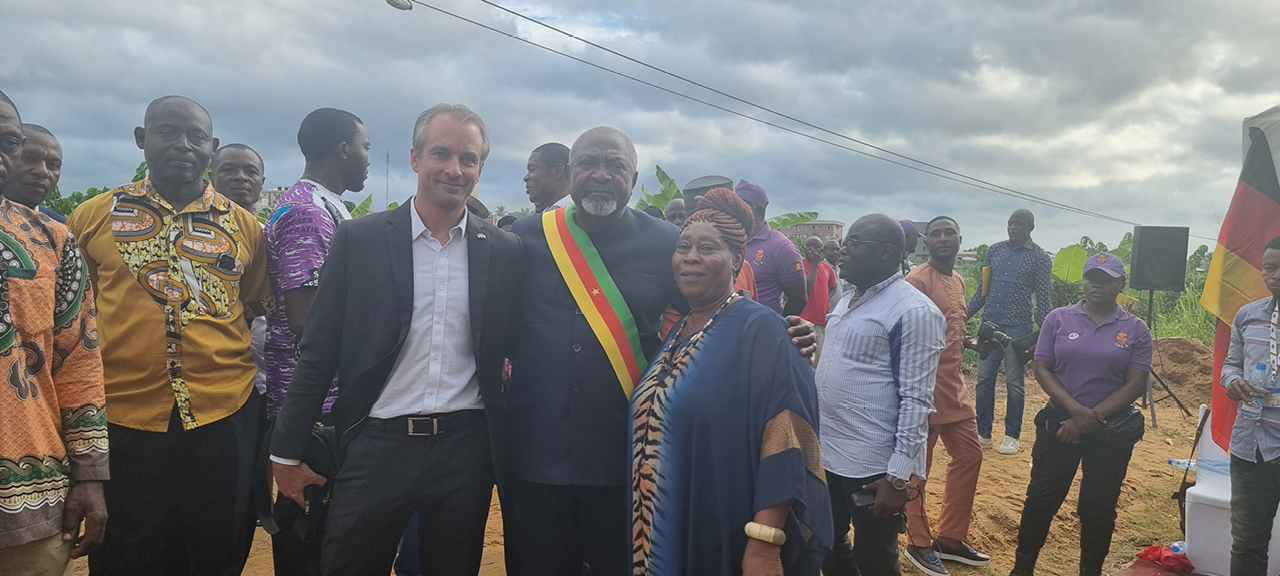
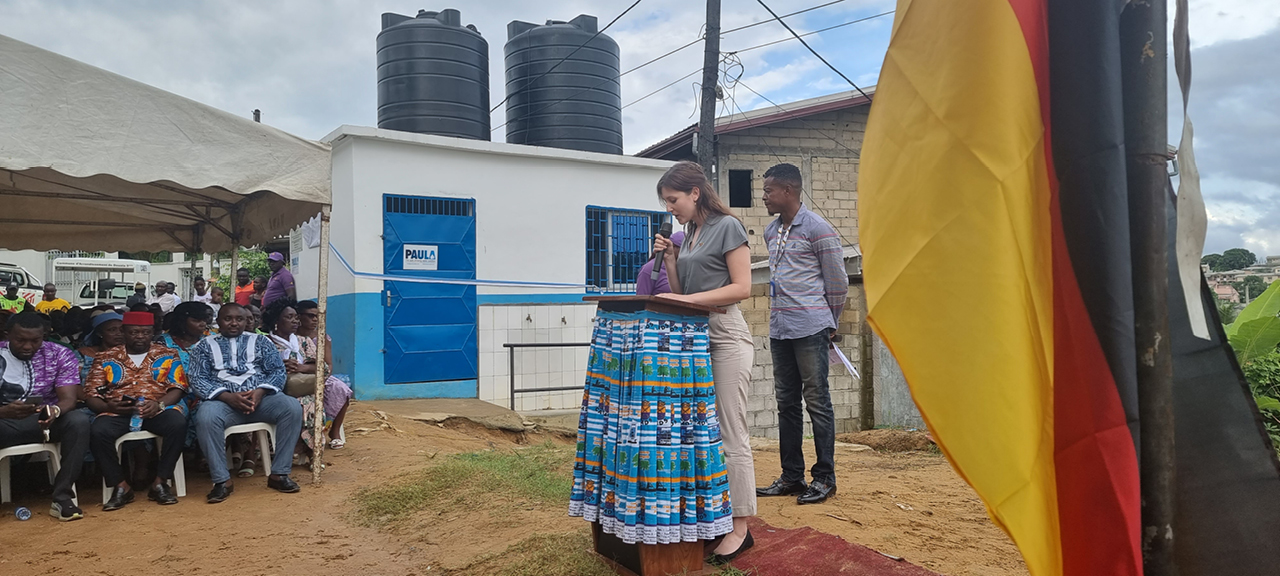
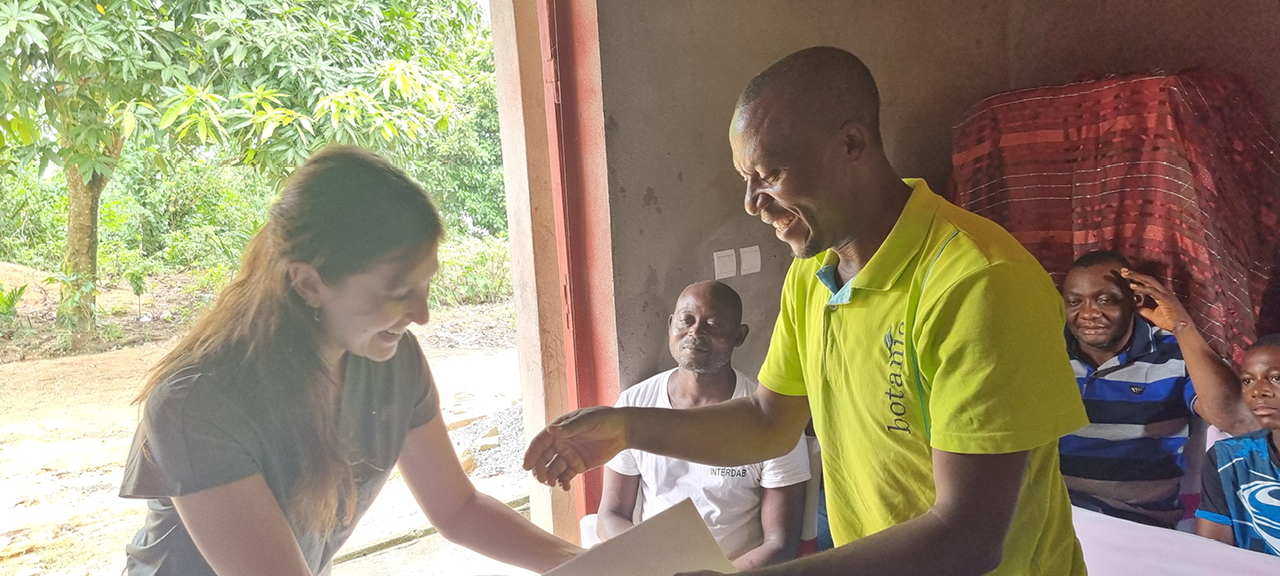
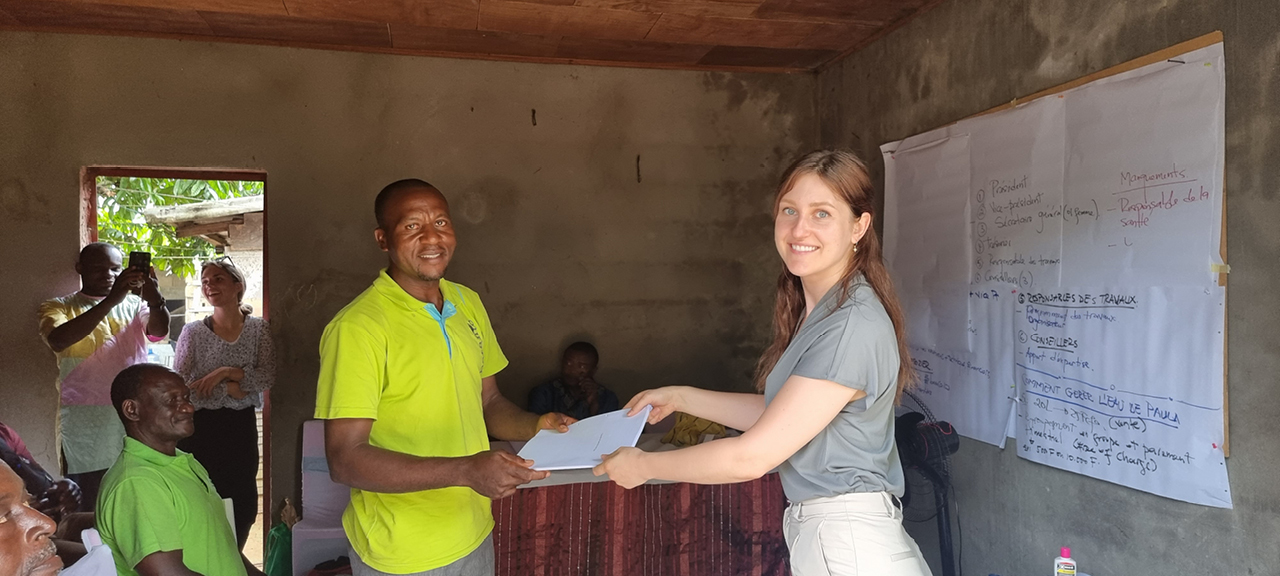
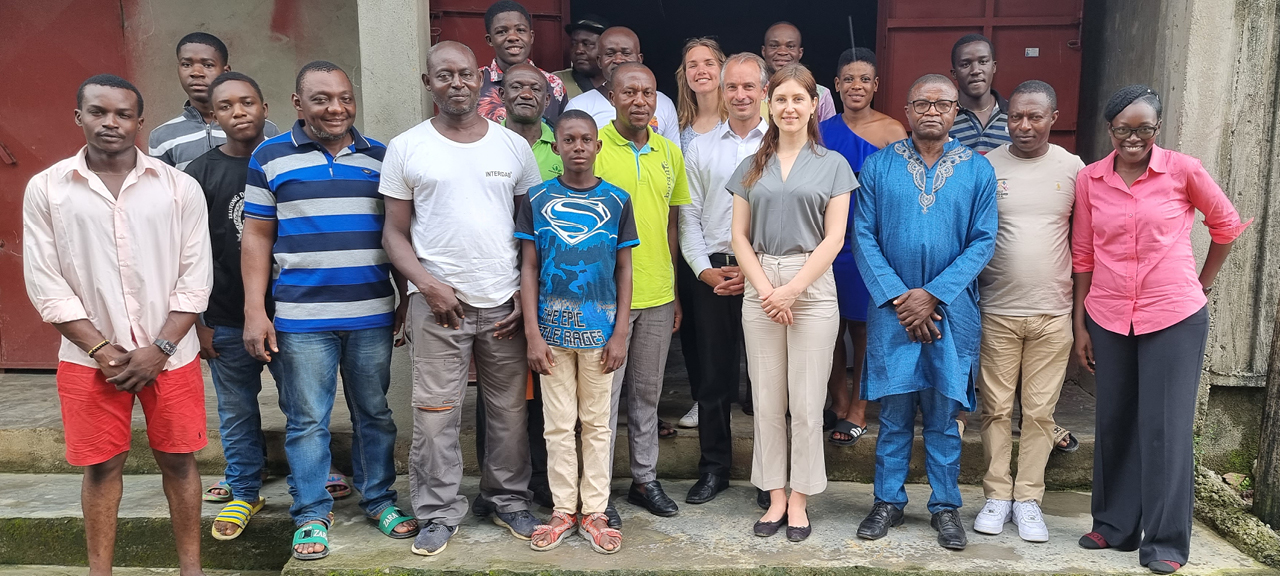
Right at the beginning, the consortium was able to hand over the ultrafiltration plant for improved drinking water safety, which was completed by the Cameroonian partner AURA, to the district of Montana City, Douala, and the water committee. They had previously been trained by Ciel Bleu and the German partners WASH. The festivities were attended by local residents and politicians as well as the press, which reported on the event. The activities in Montana City were complemented by a sensitisation training of the IHPH and the University of Yaoundé, in which simple measures to reduce the risk of contamination of drinking water sources were discussed during a field inspection.
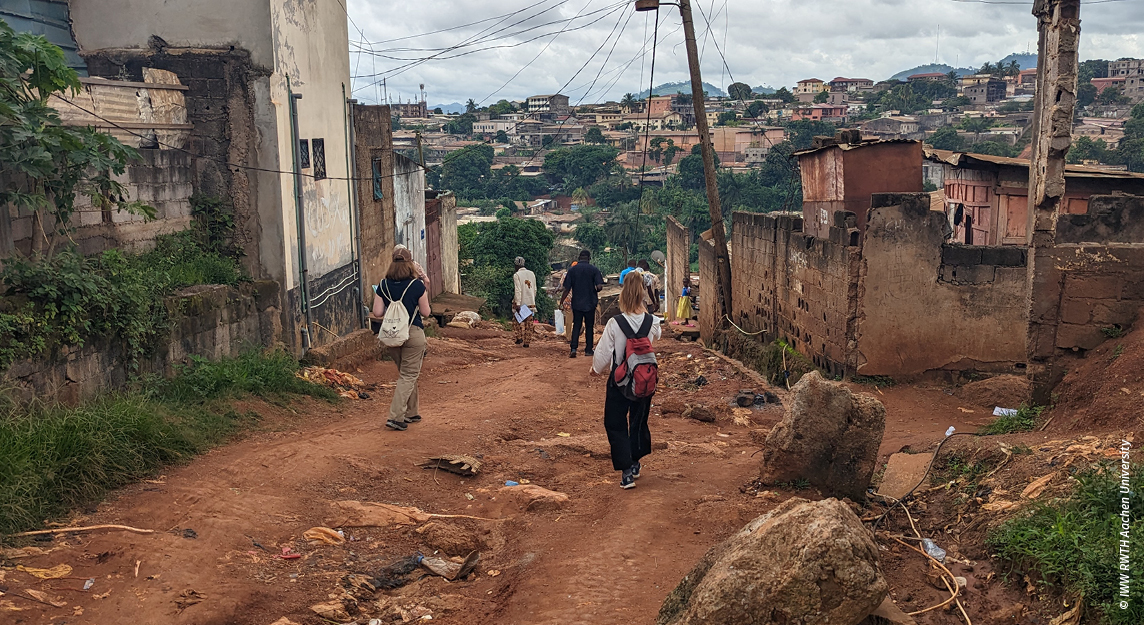
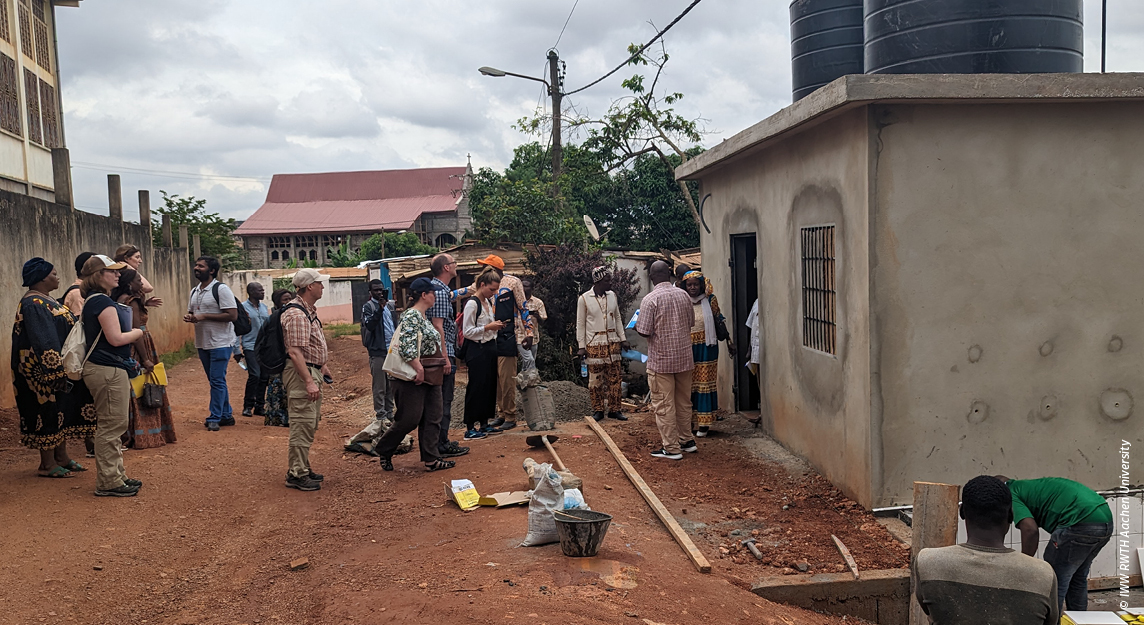
The plant is the second to be built during the project and has now been handed over; a first plant has already been in operation in Soa since last year. A third plant is currently under construction in Ngousso, Yaoundé, and was the focus of further activities during the trip. There, the status of the plant and a selection of wells were inspected. The first impressions were to be complemented by more detailed information through extensive field inspections, mapping and visits to the water sources. On the following day, a workshop on disaster prevention concepts and risk management took place. During the workshop, relevant information on flood risks was conveyed, in particular through discussions with the participants and a flood map. Subsequently, another workshop on emergency water concepts was held. In this workshop, the participants were encouraged to internalise the idea of an emergency water concept through their own calculations and active participation and to transfer it to their own situation.
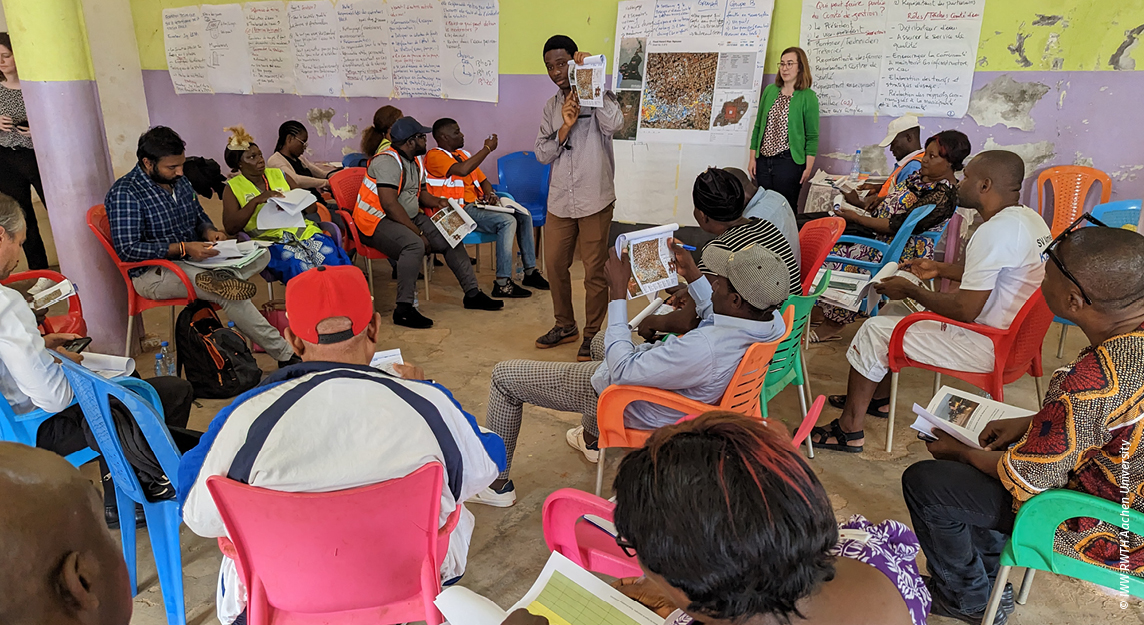
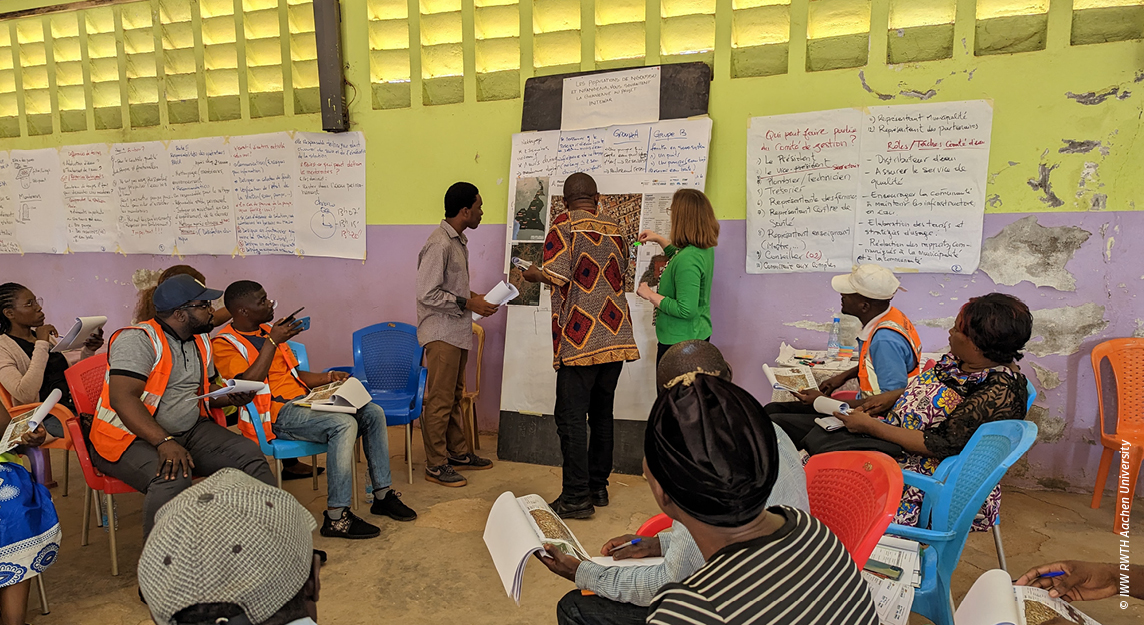
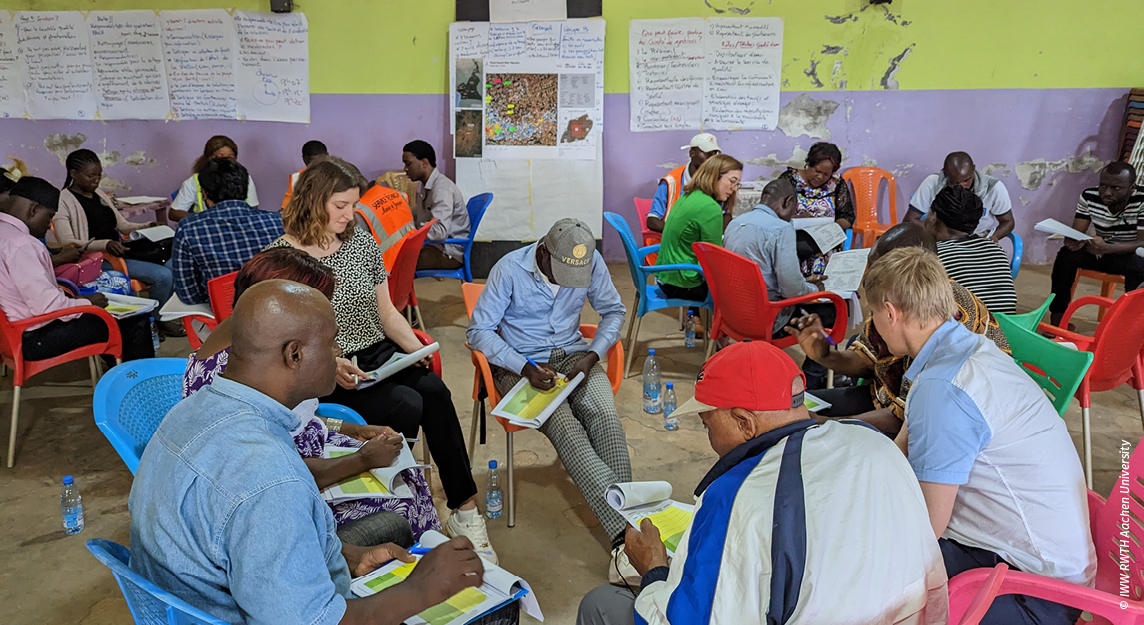
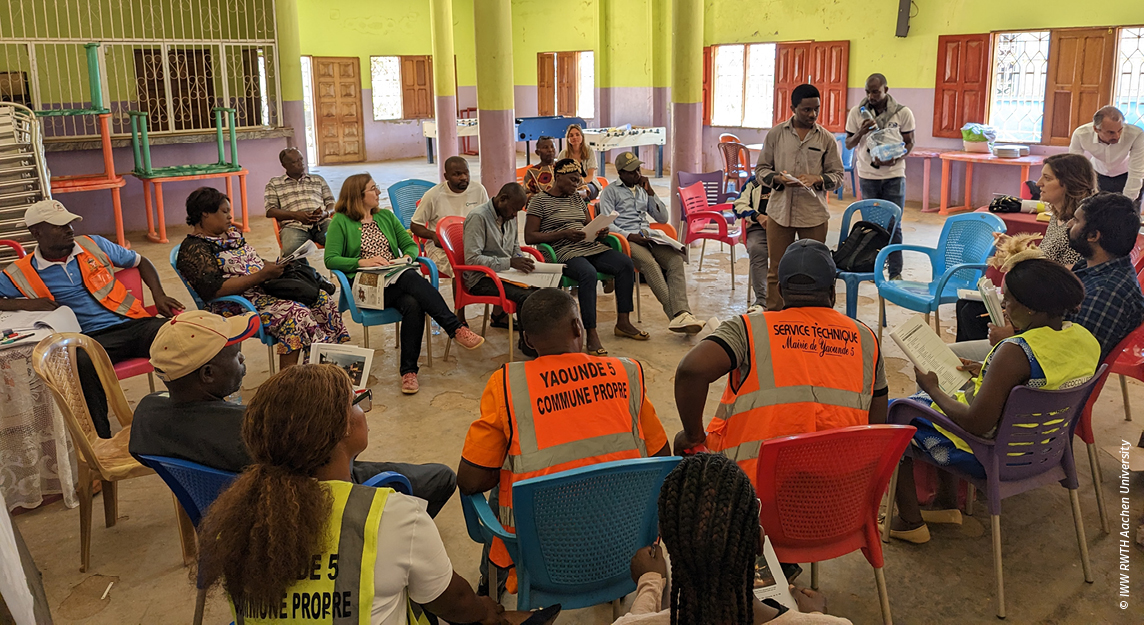
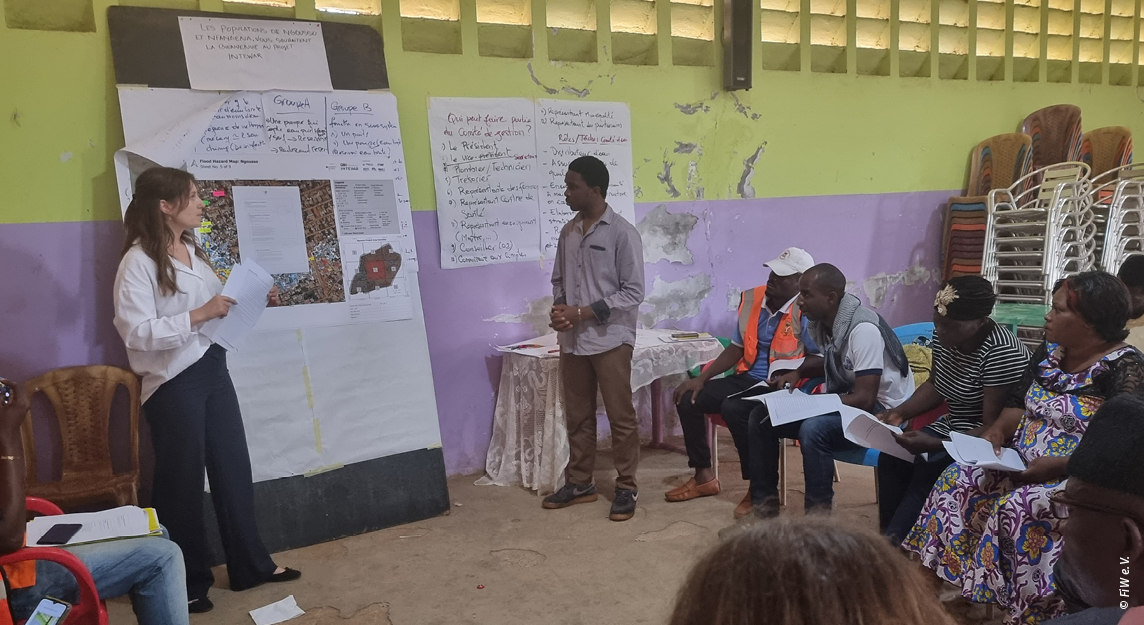
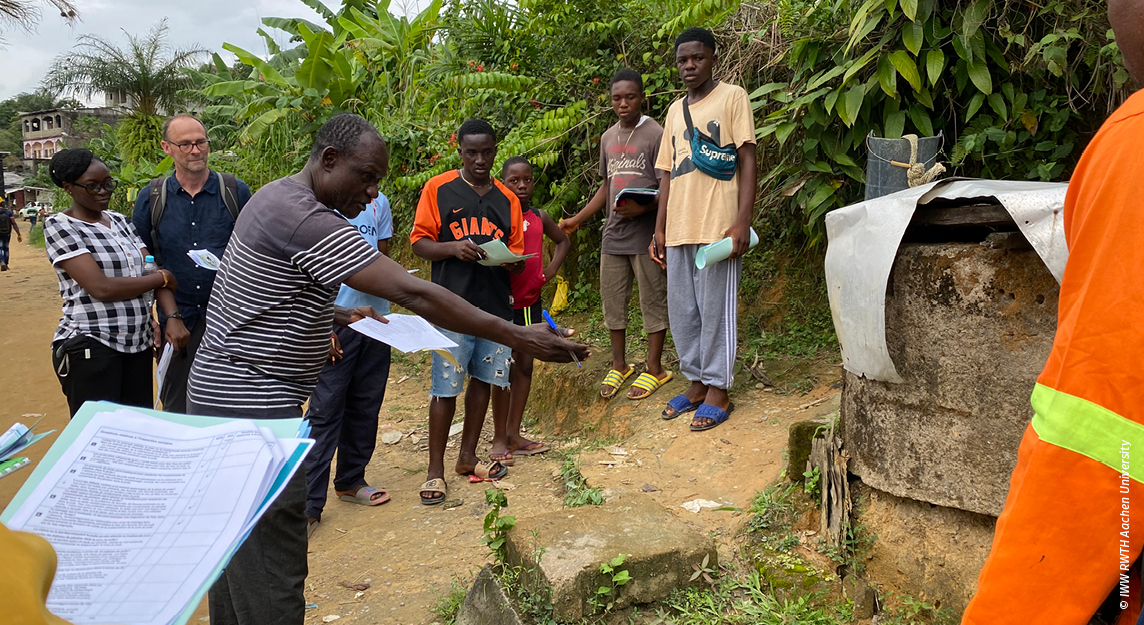
In Soa, various water points were visited and documented. This makes it possible to identify possible causes in case of water samples being contaminated. Facilities particularly worthy of protection and known for better orientation were also recorded for the preparation of flood hazard maps. For the preparation of damage analyses, a mapping of flood marks, existing flood protection measures and building types took place. In addition, awareness training on drinking water safety was conducted at the Soa Health Centre. In line with the WHO Water Safety Plan concept, so-called “Sanitary Inspection Sheets”, i.e. checklists for drinking water source assessment and evaluation, were presented and practically applied to wells in the health centre. The training was very well received by the participants and the doctor of the district health office advocated the use of the Sanitary Inspection Sheets in drinking water related epidemics to identify the riskiest drinking water sources. Finally, a meeting was held at the University of Yaoundé to promote coordination of research on drinking water analysis. The focus was on planning further work on water monitoring in Ngousso and accounting for work done so far.
A follow-up trip to the project regions is planned for November 2023, during which the final training sessions and workshops will take place, the remaining facilities will be handed over to the Cameroonian stakeholders and a final conference will invite all stakeholders involved to learn about, present and discuss the results.
